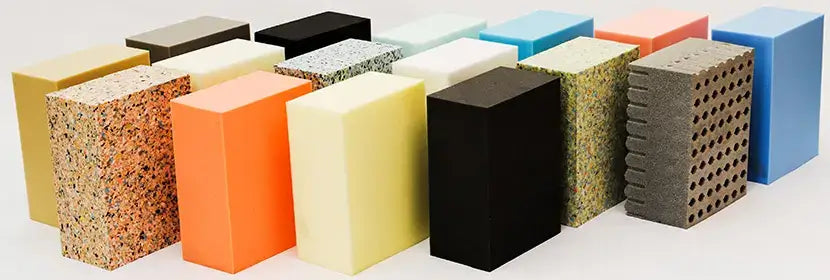When it comes to choosing the right mattress or cushioning material, density plays a crucial role in determining comfort and support. High density foam is a popular option known for its durability and performance. This blog will delve into the world of high density foam, exploring its advantages and potential drawbacks, to help you make an informed decision when considering it for your bedding or seating needs.
Understanding High Density Foam
Defining High Density Foam
High density foam is a type of polyurethane foam that is manufactured with a higher concentration of foam cells per cubic foot. This results in a foam material that is denser and more compact compared to standard or low-density foam.
The Appeal of High Density Foam
The primary appeal of high density foam lies in its ability to offer exceptional support and longevity. It is widely used in mattresses, cushions, and other seating applications due to its durability and ability to maintain its shape over time.
Embracing the Advantages of High Density Foam
Enhanced Durability
High density foam is known for its superior durability. It can withstand regular use for an extended period without developing sagging or indentations, making it a reliable and long-lasting choice.
Excellent Support
Thanks to its dense structure, high density foam provides excellent support. It can properly distribute body weight and relieve pressure points, promoting proper spinal alignment.
Longevity
High density foam retains its shape and structure over time, ensuring that it maintains its supportive properties and comfort level for years.
Noise Reduction
The dense structure of high density foam can also help reduce noise and vibration, making it an ideal choice for applications where noise control is important.
Addressing Potential Drawbacks of High Density Foam
Firmness
High density foam tends to be firmer compared to lower density foams. While some individuals prefer a firmer sleep or seating surface, others may find it uncomfortable.
Heat Retention
Like other foam materials, high density foam can retain heat. For hot sleepers or in warm climates, this may be a concern. However, many manufacturers now incorporate cooling technologies to address this issue.
Price
High density foam can be more expensive than lower density foams due to its specialized manufacturing process and higher quality.
Weight
Due to its dense composition, high density foam is heavier than lower density foams. This can make it more difficult to move or transport, especially for larger pieces like mattresses.
Final Thoughts: Is High Density Foam Right for You?
High density foam offers numerous advantages, including enhanced durability, excellent support, longevity, and noise reduction. However, potential drawbacks such as firmness, heat retention, price, and weight should also be taken into consideration.
The decision to choose high density foam should be based on your individual comfort preferences, support needs, and budget. Thorough research, reading customer reviews, and, if possible, testing out the foam in person can assist you in determining if high density foam is the perfect fit for your bedding or seating requirements.


